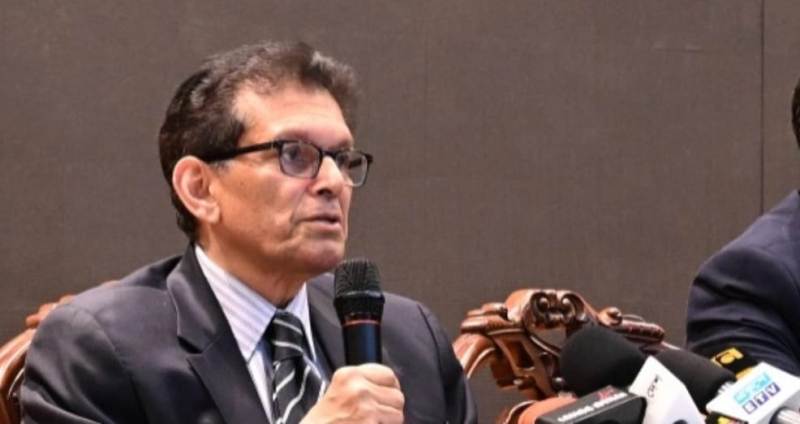Bangladesh’s newly appointed National Security Advisor (NSA) Khalilur Rahman “fled” Bangladesh some 24 years ago when his name was linked to the murder of a female government employee with whom he had questionable relations, a close relative of the woman’s deceased husband has revealed.
Speaking to Northeast News strictly on the condition of anonymity, this person, who held a key position in AmCham – American Chamber of Commerce in Bangladesh – for 14 years, confirmed that his brother Zahirul Islam shot his wife, Ayesha Ashrafi, when he discovered to his utter shock that she was having extra-marital relations with Khalilur Rahman.
In 2001, Ayesha Ashrafi, a government employee, worked in the office of the then Chief Advisor Justice (retd) Latifur Rahman. Khalilur Rahman, then a career Bangladesh Civil Service officer (Foreign Division), was appointed as Latifur Rahman’s private secretary in the rank of Deputy Secretary.
The caretaker government headed by Latifur Rahman remained in power for only three months – from July 15 to October 10, 2001, and oversaw the eight parliamentary elections that brought a BNP government to power.
At that time, Khalilur Rahman worked with the World Trade Organization (WTO) in Geneva, and in the words of a former Bangladesh foreign minister, he could not have become Latifur Rahman’s private secretary on account of being a United Nations staff.
Bangladesh government sources familiar with the manner in which Khalilur Rahman was appointed PS to Latifur Rahman disclosed that when the WTO bosses raised this issue, he simply sent a letter under his signature “stating that he was working only in an advisory capacity”.
“That letter should have been signed by and sent to WTO by the then Chief Advisor (Latifur Rahman) in accordance with due process and probity,” the former foreign minister said.
It was around this time that Khalilur Rahman used his offices and “influence” to secure a New York posting for Ayesha Ashrafi who, sources said, was “very keen to go to the US”. By this, however, Zahirul Islam, a businessman, learned about the relationship between Khalilur Rahman and Ayesha Ashrafi.
When he confronted his wife, she insisted that she would go to New York. Their altercation is said to have turned “nasty”, and in a fit of anger, Zahirul Islam pulled out his licenced gun and shot Ayesha Ashrafi before shooting himself with the same weapon. At that time, the couple were residents of Dhanmondi in Dhaka.
“A police case duly lodged but was later suppressed by Khalilur Rahman. At that time, Latifur Rahman vehemently insisted that Khalilur Rahman should leave the country without any delay, which he did,” Zahirul Islam’s relative revealed to Northeast News, adding that the couple’s physically challenged daughter died (then 20 years of age) subsequently of “natural causes”.
Khalilur Rahman joined the United Nations secretariat in 1991 as Special Adviser at the UN Conference on Trade and Development (UNCTAD) in Geneva. During the ensuing 25 years at the UN, he served in different senior positions in New York and Geneva, including as Chief of the LDCs programme at the UN secretariat. He was also Chair of the UN system interagency group on non-tariff barriers to international trade, and principal coordinator of the programme on new and dynamic sectors of world trade.
For long an American passport holder (also a resident of Greenwich, Connecticut, US), Khalilur Rahman was first appointed by the Mohammad Yunus-led interim authority as the High Representative of the Chief Adviser on the Rohingya Problem and Priority Issues, in the rank of an adviser, in November 2024.
ALSO READ: Wily Yunus will do everything to come in the way of early elections in Bangladesh
On April 9 this year, in a surprising move, Khalilur Rahman was redesignated as Bangladesh’s NSA. This has now led to a piquant situation as the position of Lieutenant General (retd) Abdul Hafiz, who was appointed in August 2024 as special adviser to assist Yunus on issues related to defence and improving national unity, is uncertain and ambiguous. Repeated phone calls and messages to Lt Gen Hafiz did not elicit any response.















